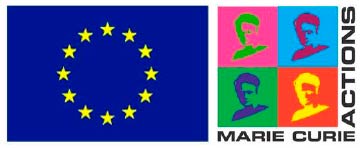ESR 5: Nucleation and propagation of compressive cracks
- Application deadline: 31/05/2020 00:00 CEST Brussels
- Offer starting date: 01/11/2020
- Researcher profile: First Stage Researcher (R1)
- Type of contract: Temporary
- Job status: Full-time
- Hours per week: 35
- Secondments: 6 months at ETH Zurich (Switzerland) & 4 months at Bosch, Renningen (Germany)
Contract signing and incorporation dates are indicative and have yet to be defined.
- Recruiting institution: Sorbonne Université»
- City, Country: Paris, France
- Organization type: Higher Education Institute
- Department: Institut Jean Le Rond d Alembert – CNRS Paris UMR 7190
- Main supervisor: Prof. Corrado Maurini
- Research Field:
- Engineering > Materials engineering
- Engineering > Mechanical engineering
Objectives
Recent results have proved that PF approaches can quantitatively predict crack nucleation for mode-I loading. However, current models do not allow for a faithful prediction of the crack nucleation event in more complex loading conditions and materials.
A further important limitation of PF models is their difficulty in reproducing fracture propagation under compressive loadings, despite the important amount of work on the subject. The principal aim of the ESR-5 project will be to investigate crack nucleation and propagation under compressive loadings and to propose novel extension of the PF approach to overcome the current limitations.
The project will include theoretical and numerical developments. The new methodologies for PF applied to fracture in compression will imply the development of coupled damage-plasticity and multi-field models. The numerical procedures, based on the FEniCS framework, will be released into the NEWFRAC collaborative computational platform to benefit other ESRs. These procedures will be applied to compressive crack onset and propagation in LFRP laminates in aeronautical applications, layered ceramics with residual compressions, and bones.
Benefits
A full-time fixed-term contract is offered. Marie Curie ITNs provide competitive financial support to the ESR including: a competitive monthly living and mobility allowance and salary, coverage of the expenses related to the participation of the ESR in research and training activities (contribution to research-related costs, meetings, conference attendance, training actions, etc.). The recruited researchers will have a regular contract with the same rights and obligations as any other staff member of the institution.
Eligibility criteria
Applicants must at the time of recruitment:
- Be in the first four years (full-time equivalent) of their research careers. The four years start to count from the date when a researcher obtained the degree (e.g. Master’s degree) which would formally entitle him/her to embark on a doctorate.
- Candidates could be of any nationality but have not resided in the host country for more than 12 months in the last 3 years.
- Have not been awarded a doctoral degree.
Selection process
Applicants are evaluated by a selection committee on the basis of past academic performance (grades) and background, scientific relevance and aptitude to research, and any other additional pertinent data submitted in the application (such as scientific publications, if any).
The candidates that pass the initial assessment of the applications will be invited for an interview with the selection committee, either in person at the campus, or via standard internet videoconference. Equal opportunities are ensured to all candidates throughout the evaluation process.
EURAXESS offer ID: 491127

Requirements
Offer requirements
- Required Education Level: Engineering - Master Degree or equivalent
- Required Languages: English - Excellent
Skills / Qualifications
- Master’s degree in Mechanical/Aeronautical/Civil Engineering/ Physics/ Applied Mathematics, earned before December 2020
- Excellent undergraduated and Master’s degree grades
- High level of written and spoken English
- Teamwork ability
Specific Requirements
- Knowledge of continuum mechanics and applied mathematics.
- Previous knowledge of fracture mechanics, damage, plasticity, finite element method, and programming skills will be appreciated.
ESR project | Host Institution | Details |
|---|---|---|
IRP/ESR 1: Total energy minimization with stress conditions for mixed mode fracture in anisotropic heterogeneous materials and structures | Universidad de Sevilla (Spain) | |
IRP/ESR 2: Toughening composites by micro and meso structural optimization | Universidad de Sevilla (Spain) | |
IRP/ESR 3: Fracture analysis of advanced layered ceramics | Sorbonne Université (France) | |
IRP/ESR 4: Fracture of LFRP ultra-thin ply laminates in aeronautical applications | Universidade do Porto (Portugal) | |
IRP/ESR 5: Nucleation and propagation of compressive cracks | Sorbonne Université (France) | |
IRP/ESR 6: Multiscale modeling of fracture processes in injection molded SFRPs | Robert Bosch GmbH (Germany) | |
IRP/ESR 7: Debonding of the reinforcement in LFRP externally strengthened curved beams | Politecnico di Torino (Italy) | |
IRP/ESR 8: Fracture in biological anisotropic hard tissues (human bones) | Tel-Aviv University (Israel) | |
IRP/ESR 9: Multi-field and multi-scale modeling of fracture for renewable energy applications | IMT School for Advanced Studies Lucca (Italy) | |
IRP/ESR 10: PF modeling of fracture in the human femur | Eidgenoessische Technische Hochschule Zürich (Switzerland) | |
IRP/ESR 11: Analysis of the failure mechanisms associated to the unfolding failure in CFRP profiles | Fundación Investigación, Desarrollo y Aplicación de Materiales Compuestos (Spain) | |
IRP/ESR 12: Fracture in fibre-reinforced thermoplastics (FRTPs) across the scales | Universidade do Porto (Portugal) | |
IRP/ESR 13: Phase Field and Finite Fracture Mechanics for dynamic crack propagation and delamination in brittle materials and composites | Politecnico di Torino (Italy) |

